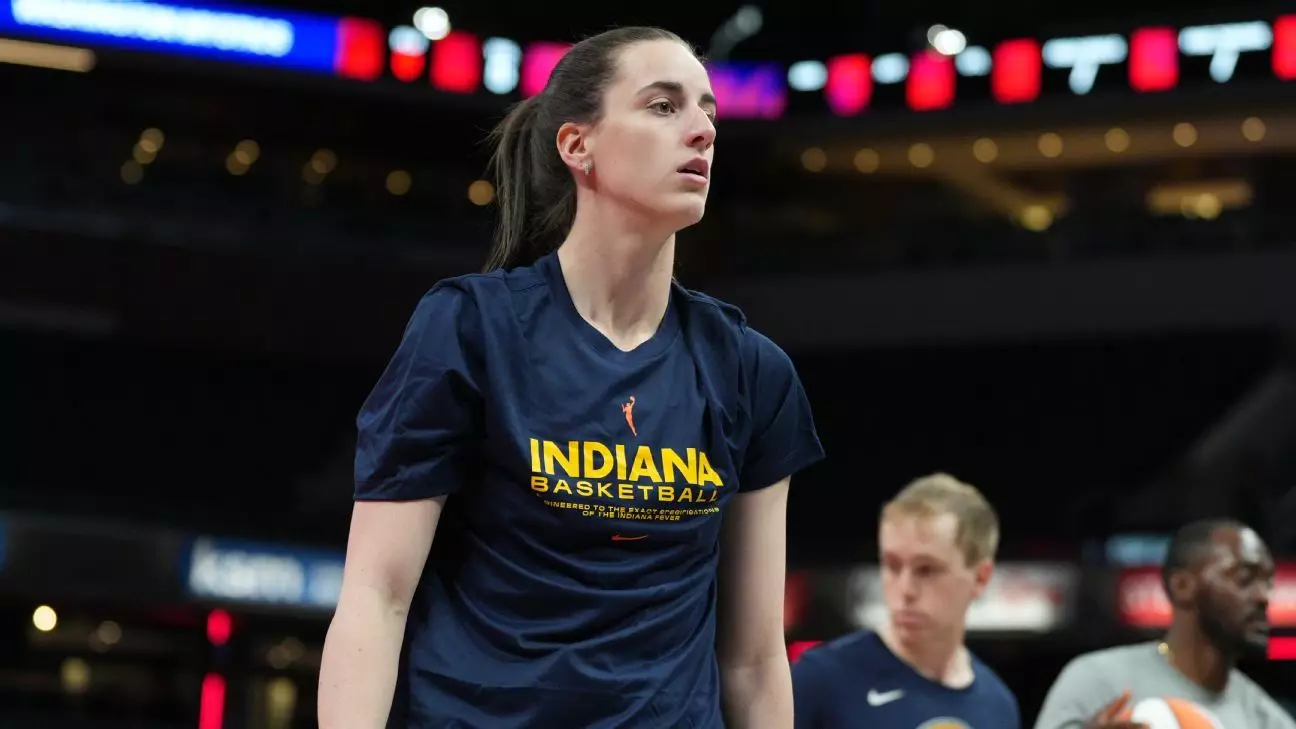In the world of professional sports, few stories shine as bright as that of Caitlin Clark, the Indiana Fever’s supremely gifted rookie. But as recent events have unfolded, her journey has taken an unexpected detour—one marked by injury and introspection. For any athlete, the inability to contribute on the court feels like a soul-crushing setback, and in Clark’s case, it’s particularly poignant as she has never missed games previously. Here is a player not just embraced by her team but revered by fans, now grappling with the fragility that accompanies physical tolls. As she recovers from a left quad strain, it brings forth a larger conversation about resilience and the psychological impact of injury.
The Struggle Beyond Physical Pain
There’s a layer to Clark’s current state that transcends mere physical discomfort. The psychological strain of watching your colleagues battle without you can be profound. Clark has openly expressed her frustration with the situation, but in a surprisingly mature and self-aware manner, emphasizing her commitment to maintaining a positive perspective. This duality—of feeling sidelined while simultaneously rooting for her teammates—is a testament to her character but also highlights the emotional toll injuries can take on athletes. It’s not just about healing a muscle; it’s about grappling with one’s sense of purpose and identity when stripped of the most fundamental aspect of their life: the game itself.
Clark admitted the challenge of patience, describing how it has tested her character. Indeed, in our instant-gratification society, waiting can feel like an eternity. For someone who thrives on exertion and competition, being forced into the role of a spectator provokes existential questions. Who is Caitlin Clark when she’s not on the court, executing her craft? Yet, despite these pressing issues, she finds solace in supporting her teammates from the sidelines, embodying the spirit of a true leader. This component of her personality might just be the silver lining of her injury, as it cultivates a new depth of understanding—both of the game and herself.
A Lesson in Perspective
As Clark prepares for her reevaluation, she shares insights that are as revealing about her growth as they are about her resilience. With the medical team guiding her every step, she acknowledges the challenge of rehabilitation, but sees it as an opportunity. She has begun to appreciate the minutiae of the game from a different angle, learning to observe strategies and dynamics she might have missed while actively playing. Such lessons often come from adversity, and in some ways, this experience could serve her well in the long run. One could argue that great athletes are often defined not just by their skill but by their capacity to adapt, learn, and overcome.
It’s fascinating to note that while Clark’s absence has undoubtedly affected the Fever’s game strategy—creating ripples in how the team operates—her influence doesn’t dissipate. Instead, it evolves. Clark has embraced her new role as a “connector” between her coaches and teammates, a reminder that leadership can manifest in various forms. Although an injury may limit physical contributions, it does not extinguish one’s impact on a group.
The Broader Implications for the Team
The Fever’s struggle without Clark—indicative in their mixed results during her absence—serves as a microcosm of what many teams experience when star players are sidelined. They must recalibrate, navigate a delicate balance of maintaining spirits while fostering growth in those who must fill the void. Clark’s insights should resonate across the league, illustrating how individual setbacks can allow entire teams to rediscover their identity and resilience. The loss of a point guard who orchestrates the game isn’t just a blow to strategy; it demands a cultural renaissance within the locker room.
Interestingly, Clark’s perspective on her injury echoes broader narratives about the nature of sport itself—athletes are often more than their physical capabilities. They are thinkers, strategists, and sometimes, unwitting students of the intricacies of games they love. In this sense, one could argue that Clark’s current chapter is equally valuable, defined by growth, learning, and the kind of emotional intelligence that cannot be cultivated in a training facility.
While the countdown to her return remains uncertain, Caitlin Clark is navigating through this trying time with an intricate blend of professionalism and honesty, embodying the spirit of a modern athlete. It’s a powerful reminder that sometimes, the most profound lessons occur off the court, elevating a player into a role well beyond that of an athlete. In the end, Clark’s journey reflects not defeat but an emergence—an eventual return fortified by newfound wisdom and patience.

